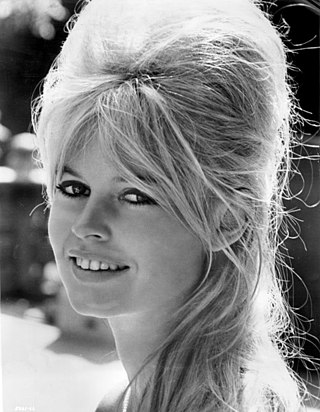
Brigitte Anne-Marie Bardot, often referred to by her initials B.B., is a French former actress, singer, and model as well as an animal rights activist. Famous for portraying characters with hedonistic lifestyles, she is one of the best known symbols of the sexual revolution. Although she withdrew from the entertainment industry in 1973, she remains a major pop culture icon. She has acted in 47 films, performed in several musicals, and recorded more than 60 songs. She was awarded the Legion of Honour in 1985.

Malcolm X was an African American revolutionary, Muslim minister and human rights activist who was a prominent figure during the civil rights movement until his assassination in 1965. A spokesman for the Nation of Islam (NOI) until 1964, he was a vocal advocate for Black empowerment and the promotion of Islam within the African American community. A controversial figure accused of preaching violence, Malcolm X is also a widely celebrated figure within African American and Muslim communities for his pursuit of racial justice.

Siegfried Loraine Sassoon was an English war poet, writer, and soldier. Decorated for bravery on the Western Front, he became one of the leading poets of the First World War. His poetry both described the horrors of the trenches and satirized the patriotic pretensions of those who, in Sassoon's view, were responsible for a jingoism-fuelled war. Sassoon became a focal point for dissent within the armed forces when he made a lone protest against the continuation of the war with his "Soldier's Declaration" of July 1917, which resulted in his being sent to the Craiglockhart War Hospital. During this period, Sassoon met and formed a friendship with Wilfred Owen, who was greatly influenced by him. Sassoon later won acclaim for his prose work, notably his three-volume, fictionalised autobiography, collectively known as the Sherston trilogy.
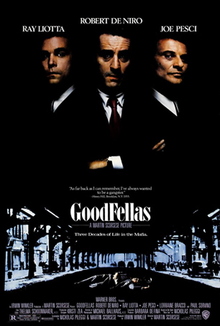
Goodfellas is a 1990 American biographical gangster film directed by Martin Scorsese, written by Nicholas Pileggi and Scorsese, and produced by Irwin Winkler. It is a film adaptation of Pileggi's 1985 nonfiction book Wiseguy. Starring Robert De Niro, Ray Liotta, Joe Pesci, Lorraine Bracco, and Paul Sorvino, the film narrates the rise and fall of mob associate Henry Hill and his friends and family from 1955 to 1980.
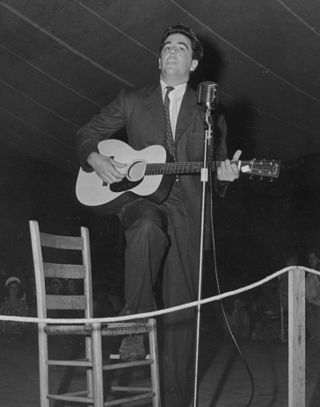
Alan Lomax was an American ethnomusicologist, best known for his numerous field recordings of folk music of the 20th century. He was a musician, folklorist, archivist, writer, scholar, political activist, oral historian, and film-maker. Lomax produced recordings, concerts, and radio shows in the US and in England, which played an important role in preserving folk music traditions in both countries, and helped start both the American and British folk revivals of the 1940s, 1950s, and early 1960s. He collected material first with his father, folklorist and collector John Lomax, and later alone and with others, Lomax recorded thousands of songs and interviews for the Archive of American Folk Song, of which he was the director, at the Library of Congress on aluminum and acetate discs.
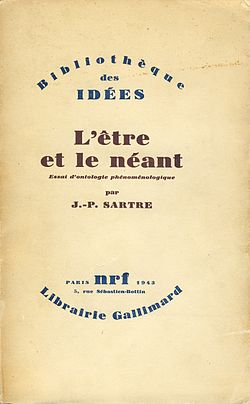
Being and Nothingness: An Essay on Phenomenological Ontology, sometimes published with the subtitle A Phenomenological Essay on Ontology, is a 1943 book by the philosopher Jean-Paul Sartre. In the book, Sartre develops a philosophical account in support of his existentialism, dealing with topics such as consciousness, perception, social philosophy, self-deception, the existence of "nothingness", psychoanalysis, and the question of free will.

The King of Comedy is a 1982 American satirical black comedy film directed by Martin Scorsese and starring Robert De Niro, Jerry Lewis and Sandra Bernhard. Written by Paul D. Zimmerman, the film focuses on themes such as celebrity worship and American media culture. 20th Century-Fox released the film on February 18, 1983, in the United States, though the film was released two months earlier in Iceland.
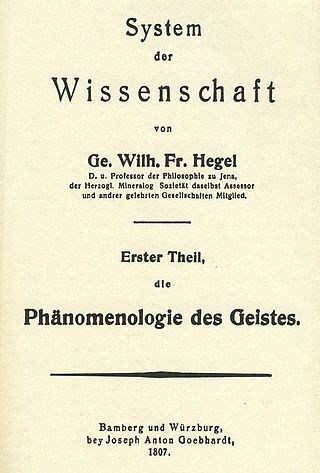
The Phenomenology of Spirit is the most widely discussed philosophical work of Georg Wilhelm Friedrich Hegel; its German title can be translated as either The Phenomenology of Spirit or The Phenomenology of Mind. Hegel described the work, published in 1807, as an "exposition of the coming to be of knowledge". This is explicated through a necessary self-origination and dissolution of "the various shapes of spirit as stations on the way through which spirit becomes pure knowledge".

Being and Time is the 1927 magnum opus of German philosopher Martin Heidegger and a key document of existentialism. Being and Time is among the most influential texts of 20th-century philosophy. It had a notable impact on subsequent philosophy, literary theory and many other fields. Though controversial, its stature in intellectual history has been compared with works by Immanuel Kant and G. W. F. Hegel. The book attempts to revive ontology through an analysis of Dasein, or "being-in-the-world." It is also noted for an array of neologisms and complex language, as well as an extended treatment of "authenticity" as a means to grasp and confront the unique and finite possibilities of the individual.

The Grifters is a 1990 American neo-noir crime thriller film directed by Stephen Frears, produced by Martin Scorsese, and starring John Cusack, Anjelica Huston, and Annette Bening. The screenplay was written by Donald E. Westlake, based on Jim Thompson's 1963 novel. The film won the Independent Spirit Award for Best Film and was declared one of the Top 10 films of 1990 by The National Board of Review of Motion Pictures.

Sir Stephen Arthur Frears is a British director and producer of film and television, often depicting real life stories as well as projects that explore social class through sharply-drawn characters. He has received numerous accolades including three BAFTA Awards, and a Primetime Emmy Award as well as nominations for two Academy Awards. In 2008, The Daily Telegraph named Frears among the 100 most influential people in British culture. In 2009, he received the Commandeur de l'Ordre des Arts et des Lettres. He received a knighthood in 2023 for his contributions to the film and television industries.

The Firm is a 1991 legal thriller by American writer John Grisham. It was his second book and the first that gained wide popularity. In 1993, after selling 1.5 million copies, it was adapted into a film of the same name starring Tom Cruise, Gene Hackman and Jeanne Tripplehorn. Grisham's first novel, A Time to Kill, came into prominence afterwards due to this novel's success.
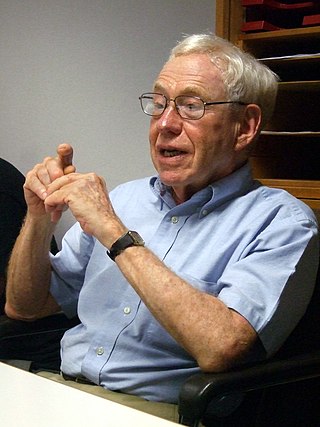
Hubert Lederer Dreyfus was an American philosopher and a professor of philosophy at the University of California, Berkeley. His main interests included phenomenology, existentialism and the philosophy of both psychology and literature, as well as the philosophical implications of artificial intelligence. He was widely known for his exegesis of Martin Heidegger, which critics labeled "Dreydegger".

Donnie Brasco is a 1997 American crime drama film directed by Mike Newell and starring Al Pacino and Johnny Depp. Michael Madsen, Bruno Kirby, James Russo and Anne Heche appear in supporting roles. The film, written by Paul Attanasio, is based on the 1988 nonfiction book Donnie Brasco: My Undercover Life in the Mafia by Joseph D. Pistone and Richard Woodley.
Raymond Durgnat was a British film critic, who was born in London to Swiss parents. During his life he wrote for virtually every major English language film publication. In 1965 he published the first major critical essay on Michael Powell, who had hitherto been "fashionably dismissed by critics as a 'technician's director'", as Durgnat put it.

Phenomenology of Perception is a 1945 book about perception by the French philosopher Maurice Merleau-Ponty, in which the author expounds his thesis of "the primacy of perception". The work established Merleau-Ponty as the pre-eminent philosopher of the body, and is considered a major statement of French existentialism.
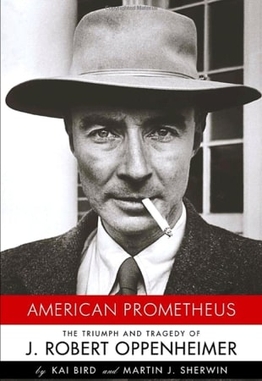
American Prometheus: The Triumph and Tragedy of J. Robert Oppenheimer is a 2005 biography of theoretical physicist J. Robert Oppenheimer, the leader of the Manhattan Project which produced the first nuclear weapons, written by Kai Bird and Martin J. Sherwin over a period of 25 years. It won numerous awards, including the 2006 Pulitzer Prize for Biography or Autobiography.

Louis Emanuel Lomax was an African-American journalist and author. He was also the first African-American television journalist.

Mark Wrathall is Professor of Philosophy at the University of Oxford and a fellow and tutor at Corpus Christi College, Oxford. He is considered a leading interpreter of the philosophy of Martin Heidegger. Wrathall is featured in Tao Ruspoli's film Being in the World. According to a reviewer, "Wrathall's writing is clear and comprehensive, ranging across virtually all of Heidegger's collected works.... Wrathall's overall interpretation of Heidegger's work is crystal clear, compelling, and relevant."
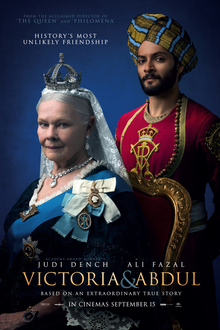
Victoria & Abdul is a 2017 British biographical historical drama film directed by Stephen Frears and written by Lee Hall. The film is based on the book Victoria & Abdul: The True Story of the Queen's Closest Confidant by Shrabani Basu, about the real-life relationship between Queen Victoria of the United Kingdom and her Indian Muslim servant Abdul Karim. It stars Judi Dench, Ali Fazal, Michael Gambon, Eddie Izzard, Tim Pigott-Smith, and Adeel Akhtar. The film had its world premiere at the 74th Venice Film Festival and was theatrically released on 15 September 2017 in the United Kingdom. It has grossed over $65 million worldwide.


















